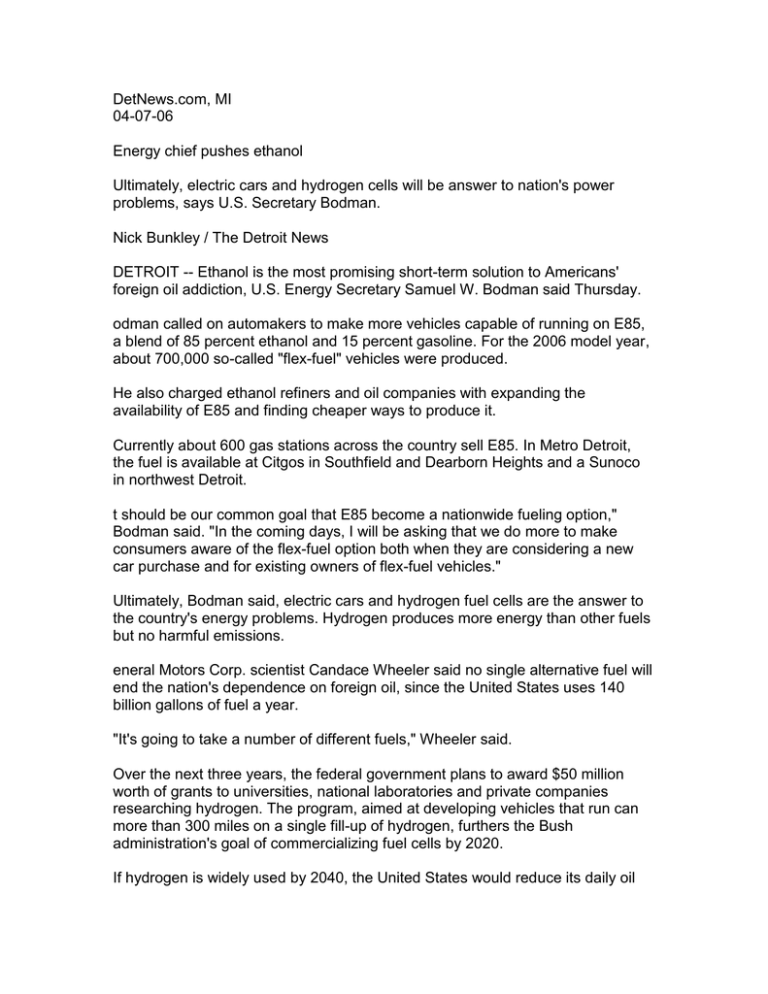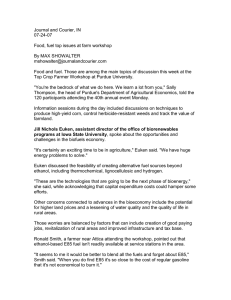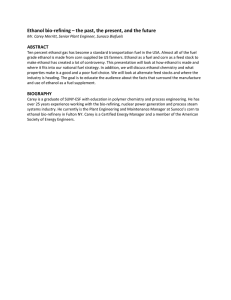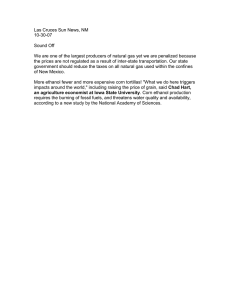DetNews.com, MI 04-07-06 Energy chief pushes ethanol
advertisement

DetNews.com, MI 04-07-06 Energy chief pushes ethanol Ultimately, electric cars and hydrogen cells will be answer to nation's power problems, says U.S. Secretary Bodman. Nick Bunkley / The Detroit News DETROIT -- Ethanol is the most promising short-term solution to Americans' foreign oil addiction, U.S. Energy Secretary Samuel W. Bodman said Thursday. odman called on automakers to make more vehicles capable of running on E85, a blend of 85 percent ethanol and 15 percent gasoline. For the 2006 model year, about 700,000 so-called "flex-fuel" vehicles were produced. He also charged ethanol refiners and oil companies with expanding the availability of E85 and finding cheaper ways to produce it. Currently about 600 gas stations across the country sell E85. In Metro Detroit, the fuel is available at Citgos in Southfield and Dearborn Heights and a Sunoco in northwest Detroit. t should be our common goal that E85 become a nationwide fueling option," Bodman said. "In the coming days, I will be asking that we do more to make consumers aware of the flex-fuel option both when they are considering a new car purchase and for existing owners of flex-fuel vehicles." Ultimately, Bodman said, electric cars and hydrogen fuel cells are the answer to the country's energy problems. Hydrogen produces more energy than other fuels but no harmful emissions. eneral Motors Corp. scientist Candace Wheeler said no single alternative fuel will end the nation's dependence on foreign oil, since the United States uses 140 billion gallons of fuel a year. "It's going to take a number of different fuels," Wheeler said. Over the next three years, the federal government plans to award $50 million worth of grants to universities, national laboratories and private companies researching hydrogen. The program, aimed at developing vehicles that run can more than 300 miles on a single fill-up of hydrogen, furthers the Bush administration's goal of commercializing fuel cells by 2020. If hydrogen is widely used by 2040, the United States would reduce its daily oil consumption by 11 million barrels a day. But Americans shouldn't wait until fuel cells are viable to start weaning themselves off gasoline, Bodman said. He mentioned clean diesel and hybrid technology as positive steps but spent much of his speech at the Society of Automotive Engineers World Congress talking up ethanol. Thirty-three ethanol plants are under construction, Bodman said, and nine of the 97 existing facilities are expanding. When completed, the projects will increase nationwide output by 40 percent. In addition to production capacity, the use of ethanol is being hindered by its price. Most ethanol is made from corn, and corn prices have risen because about 14 percent of the nation's crop is used to make ethanol. As a result, E85 costs about the same as regular gasoline per gallon and most drivers actually end up paying more to use E85 because it causes fuel economy to decline. On Thursday, the Sunoco station on Eight Mile near Lahser was selling E85 for $2.60 a gallon, 10 cents less than regular gas. To drive prices lower, the Energy Department is encouraging ethanol producers to use materials such as wood chips, wild grasses and corn cobs instead of corn. Until the fuel is appealing financially, experts say the government likely will need to provide incentives to encourage its use. "The cost involved in the production of flexible fuel vehicles and the nonexistent ethanol fuel infrastructure are the strong barriers currently prohibiting the extension of automotive fleets to dual-fuel capacity," researchers at Iowa State University wrote in a report this week. "In order to make alternative fuels available to consumer the federal government must be prepared to aid distributors in making E85 available." Bodman said he's surprised the national economy has continued to create jobs despite near-record gas prices and oil prices above $60 a barrel but worries that continued increases will eventually stymie growth. "Whether it's $95 or something north of that, I don't know," Bodman said. "I worry about anything above current levels." Detroit News staff writer David Shepardson contributed to this report. You can reach Nick Bunkley at (313) 222-2293 or nbunkley@detnews.com.





